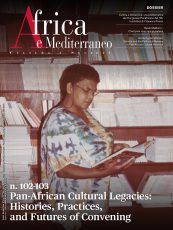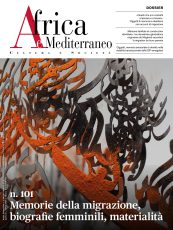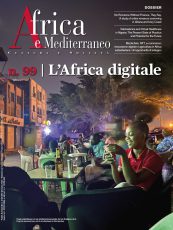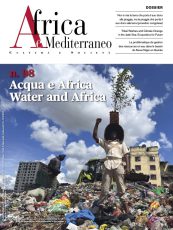Work: after years monopolized by the theme of landings and reception management, finally a new theme – one that is concrete, positive, and “normal” – is becoming increasingly relevant in the debate on migration in Europe. For those who arrive on the Continent, integrating into the working environment represents the possibility of contributing to the economic and social life of the host country while rebuilding an independent life.
The dossier n. 88 by Africa e Mediterraneo is dedicated to the professional integration of migrants and asylum seekers, addressed through its economic, social and political aspects, thanks to the contributions of professors and experts in the sector. Among the ideas proposed: a focus on current European employment policies, the analysis of concrete cases in Italy and Sweden, a deepening of discrimination, the complex issue of recognition of qualifications and academic certificates.
Data and scientific evidence highlights the need to structure longer-term actions, aimed at rapid and unrestricted integration into the European labour market, focusing on education, training and structured pathways. An integration which, given the demographic aging of Member States and labour shortages, may prove to be an investment in the future for the host societies themselves.
SOMMARIO
ABSTRACTS
Creative Commons Articles
• Sandra Federici, “Editoriale. Lavoro, integrazione, normalità”, in «Africa e Mediterraneo», vol. 27, n. 88, 2018, pp. 1-3
• Alessio J. G. Brown, “Labour Market Integration of Migrantsin the European Union”, in «Africa e Mediterraneo», vol. 27, n. 88, 2018, pp. 7-12
• Bernd Parusel, “The European Migration Policy Crisis and the Need for Circular Migration and Immigration Status Changes”, in «Africa e Mediterraneo», vol. 27, n. 88, 2018, pp.13-17
• Chiara Monti, “Promising Developments in the Labour Market Integration of Asylum Seekers and Refugees in the EU”, in «Africa e Mediterraneo», vol. 27, n. 88, 2018, pp. 18-25
• Ojeaku Nwabuzo, “Labour Market Integration/Discrimination in the EU with a Focus on Migrant Women”, in «Africa e Mediterraneo», vol. 27, n. 88, 2018, pp. 26-29
• Alessia Lefébure, “La reconnaissance des qualifications, des diplômes et des compétences en Europe: une étape importante vers l’intégration socioéconomique des réfugiés”, in «Africa e Mediterraneo», vol. 27, n. 88, 2018, pp. 30-33
• Eloïse Chopin, Antoine Inglebert-Frydman, Lionel Pourtau, “Concilier intégration culturelle et insertion professionnelle des réfugiés grâce aux Industries culturelles et créatives: une comparaison entre la France, l’Allemagne et l’Italie”, in «Africa e Mediterraneo», vol. 27, n. 88, 2018, pp. 34-41
• Giorgia Gruppioni, “Il riconoscimento dei titoli di studio esteri in Italia: un percorso a ostacoli?”, in «Africa e Mediterraneo», vol. 27, n. 88, 2018, pp. 42-47
• Caroline Tovatt, “The Integration of Migrants and Asylum Seekers into the Labour Market: the Case of Sweden”, in «Africa e Mediterraneo», vol. 27, n. 88, 2018, pp. 48-53
• Sofia Vilarinho, “African Immigrant Tailors in Lisbon – An Approach To (Co)learning”, in «Africa e Mediterraneo», vol.27, n. 88, 2018, pp. 54-59
• Annavittoria Sarli, Pierre Georges Van Wolleghem, “The Integration of Migrants and Asylum Seekers into the Labour Market: the Case of Italy”, in «Africa e Mediterraneo», vol. 27, n. 88, 2018, pp. 60-65
• Paola Lacarpia, “Le frontiere del corpo: il velo e l’identità femminile delle giovani generazioni”, in «Africa e Mediterraneo», vol. 27, n. 88, 2018, pp. 90-96
• Piergiorgio Degli Esposti, Giuseppe Losacco, “I ragazzi del coro Nativi Musicali”, in «Africa e Mediterraneo», vol. 27, n.88, 2018, pp. 97-101








